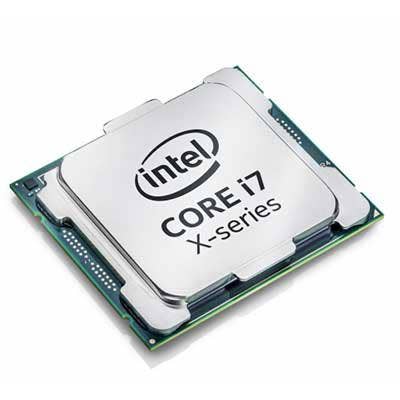5 Companies That Had A Rough Week

The Week Ending Dec. 15
Topping this week's roundup of those having a rough week is Xerox, its board and CEO who are coming under pressure from activist investor Carl Icahn.
Also making the list this week are Atos, whose bid to acquire Gemalto for $5 billion was shot down; Intel partners who could be hit by reported cuts in the iconic "Intel Inside" program; Kaspersky Lab, whose business continues to suffer because of the ban on the use of its software by the U.S. government; and three programmers who have plead guilty to charges surrounding the Mirai IoT botnet attack.
Not everyone in the IT industry was having a rough go of it this week. For a rundown of companies that made smart decisions, executed savvy strategic moves – or just had good luck – check out this week's Five Companies That Came To Win roundup.

Carl Icahn Steps Up Pressure On Xerox, Wants CEO Jacobsen Out
Xerox – and CEO Jeff Jacobson – are ending 2017 on a turbulent note with activist investor Carl Icahn (pictured) pressuring the company for change and this week calling for Jacobson's removal less than a year after his appointment.
Icahn, who owns more than a 9 percent stake in Xerox, said in a Wall Street Journal interview this week that Xerox is in danger of going "the way of Kodak" unless changes are made. He has nominated his own slate of candidates to replace what he calls "the old guard that controls the [Xerox] board."
Jacobson became Xerox CEO in January when the company split into Xerox and services provider Conduent.

Atos Shot Down In $5-Billion Bid To Acquire Gemalto
It was a bold move: Paris-based solution provider Atos made a bid to acquire Amsterdam-based Gemalto for $5.05 billion in a combination that would have created a powerhouse in cybersecurity and digital services. The bid, actually made Nov. 28, was made public this week.
But on Wednesday Gemalto shot down the offer on no uncertain terms. Gemalto said Atos' offer "significantly undervalues" the company and "fails to provide a compelling strategy versus Gemalto's standalone prospects." Gemalto said the offer "fails to adequately address the interests" of Gemalto's various stakeholders and does not offer "sufficient deal certainty."
All this could just be the opening moves in a negotiation dance: A few hours after the rejection Atos said it intended to push ahead with its unsolicited offer, according to a Bloomberg story. But the hard rejection made for a tough week for Atos.

Intel Planning Steep Cuts To Landmark "Intel Inside" Program That Could Impact PC Makers, Channel Partners
Intel's iconic "Intel Inside" program, a wildly successful branding effort for microprocessors that consumers almost never see, could be in for some steep budget cuts, CRN reported this week. And that could be bad news for Intel OEM and channel partners whose businesses benefitted from the long-running program.
The program has been a major source of funding for PC makers and channel partners for two decades and helped drive PC sales growth – as much as 40 to 60 percent, according to some industry sources.
If the reports are accurate, cuts in the Intel Inside budget will reverberate through the industry, including potential PC price increases from OEMs to cutbacks in marketing from systems builders and solution providers.

Partners: U.S. Government Ban Will Deliver Huge Blow To Kaspersky Lab
Kaspersky Lab this week continued to struggle with the ongoing fallout from the ban on the U.S. government's use of the vendor's security software. This week saw President Donald Trump sign a proclamation that reinforced a directive from his administration in September stipulating that civilian agencies remove Kaspersky software within 90 days.
The new proclamation applies to both civilian and military networks and was part of a broader defense policy spending bill.
This week partners told CRN that the ban would likely have a big impact on their Kaspersky business and they have begun shifting customers away from the company's software in favor of alternative products.

Three Men Plead Guilty To Charges Surrounding The Mirai IoT Botnet Attack
Three individuals have plead guilty to charges they created and operated "botnets" of some 300,000 Internet of Things devices infected with malicious code that were used in the Mirai distributed denial of service attacks last year. One of the defendants also plead guilty to launching a cyberattack against the Rutgers University computer network.
The Mirai attack against domain server service provider DynDNS in October 2016 caused outages to a large number of websites and web applications.
The individuals: Paras Jha, Josiah White and Dalton Norman, plead guilty on Dec. 8 to changes of conspiracy to violate the Computer Fraud & Abuse Act, the U.S. Justice Department said this week. On Dec. 13 Jha plead guilty to a similar charge related to the Rutgers attack.